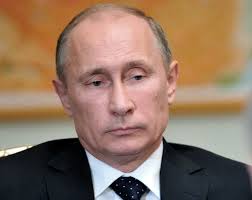The American historian and journalist Anne Applebaum exhorts German readers to learn the lessons of history: (Deustche, ihr müsst wieder Abschreckung lernen! – Germans, you have to learn the lessons of deterrence!)
Ms. Applebaum knows something about history – especially history of the Soviet Union. Her history of Stalins network of Gulags – Gulag: A History – remains THE definitive work on the subject. Her more recent book on postwar Eastern Europe – Iron Curtain: The Crushing of Eastern Europe, 1944-1956 (see my review) – describes the origins and consolidation of Soviet domination of Poland, Hungary and East Germany.
Here she praises Germany's skill at international diplomacy, but reminds readers that it wasn't Ostpolitik that led to the fall of the Berlin Wall; rather it was western military might:
Die Rote Armee wurde durch eine große Anzahl amerikanischer Soldaten, Waffen, Panzer und Nuklearwaffen abgeschreckt. Mit Diplomatie hatte das auch nichts mehr zu tun.
(The Red Army was deterred by a large number of American soldiers, weapons, tanks and nuclear weapons. Diplomacy had nothing to do with it. )
Putin is showing today that diplomacy is no deterrent to Russia's hegemonic goals in the Ukraine – and perhaps elsewhere:
Russland ist nicht nur am internationalen Recht nicht interessiert, Russland will es zerstören. Warum annektierte Putin die Krim, statt den Konflikt, so wie er es im Falle Abschasiens und Südossetiens tat, in einem Schwebezustand zu belassen?
Er tat so, weil er beweisen wollte, dass alle Regeln, nach denen Europa und besonders Deutschland in den letzten 60 Jahren lebten, nicht länger gelten. Er will das Vertrauen, das die Europäer in ihre Grenzen haben, destabilisieren. Er will, dass all die Pakte, Verträge und Vereinbarungen, die Europa nach 1945 und 1989 befriedeten, von uns selbst hinterfragt werden.
(Russia is not interested in international law. Russia would rather destroy it. WHy did Putin annex Crimea rather than leaving the situation in an ambiguous position as in the case of Abhkazia and Ossetia? He did it because he wanted to demonstrate that the old rules no longer apply. He wanted to shake the trust that Europeans have in their borders. He wants us to call into question all the pacts, agreements, and contracts which have kept Europe peaceful after 1945.)
Will Germany defend NATO and the institutions that brough it peace and prosperity for 60 years?
Alle europäischen Institutionen haben Deutschland in den letzten 60 Jahren Frieden und außergewöhnlichen Wohlstand gebracht. Will Deutschland dies alles verteidigen, braucht es nun doch mehr als nur Diplomatie.
(Europe's institutions have brought Germany peace and extraordinary prosperity for the last 60 years. If Germany wants to defend this, it will require more than diplomacy.)
Judging from the reader comments to Ms. Applebaum's piece, her words are falling on deaf ears. Here is a typical – and disheartening – comment:
Gute Beziehungen zu Russland sind für Deutschland wichtiger als die Ukraine, die EU oder die Beziehungen zu den USA.
Die USA sind nur noch eine Besatzungsmacht welche Deutschland für die eigenen Interessen missbraucht.Dementsprechendist nicht Russland der feind sondern mittlerweile die USA , der Feind im eigenen Land.(Good relations with Russia are more important that the Ukraine, EU or relations with the US. The US is nothing but an occupation force which misuses Germany for its own interests. For this reason Russia is not the enemy but rather in the meantime the US – the enemy in our own country.)
'There is a new word that keeps cropping up in the German press these days: Entwestlichung = de-westernization. It does seem very appropriate.



0 comment
It will always make me laugh when Americans want Germany to contribute more towards deterrence of Russia.
One can hardly argue that you can do more against the Red Army than what Germany did.
May I dare to ask which country motorized the Red Army and kept it from being crushed?
Luckily for us, Russia is no longer the Soviet Union. So different options should be available this time.
“[Putin] wanted to shake the trust that Europeans have in their borders. He wants us to call into question all the pacts, agreements, and contracts which have kept Europe peaceful after 1945.”
That may very well be the case. Given the way Europe’s borders have changed in the 20th century however, I can see absolutely no reason why Germany should hinder Putin here.
Thank you very much for helping me come to terms with the current development. Now I can finally see what good it can bring us in the long run.
It gets even better:
Would you sit in Berlin as one of Germany’s foreign policy decision makers and would you approve of Russia shaking the 1945 world order (I am not saying this is necessarily the case), what would you do?
Would you not want Russia to take all the blame and see how things unfold without you having to interfere?
And how could you get away with this approach? By constantly preaching “all we can do is count on diplomacy”, being fully aware that peaceful attitude this will have no effect on the course of events?
Horribly evil questions don’t you agree? 😉
*being fully aware that this peaceful attitude will have no effect on the course of events?
Zyme – you may be right. Putin’s triumph may turn out to be a Pyrrhic victory – for the people of Russia.
To the people of Eastern Ukraine: be careful what you wish for!